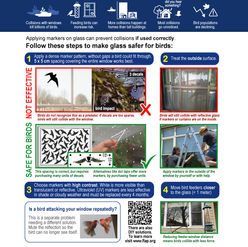Resources for Public Education
This page provides information to support Londoners educating others
in their communities about actions to help conserve birds.
Many of the threats birds face in London are created or worsened by humans – often, members of the public and businesses who simply don't realize what's going on. There are a lot of misconceptions and misinformation about birds, nature and biology! People may hold beliefs they developed when they were younger and science had uncovered less about birds and human impacts, or they may bring beliefs and customs from other parts of the world. In any case, as neighbours we must meet folks where they're at, respect our differences and find common ground.
How do we connect with people, from all walks of life, to share information about why birds matter, how to help conserve birds and, if needed, how to correct problematic behaviours? Many of us who feed and watch birds already know how to take better care, such as by not allowing pet cats to roam outside, treating our windows, adjusting our landscaping practices and our behaviour in natural areas. But conservation actions should not be limited to our bubble; we can be more effective if we reach out to educate and include others within our communities.
This outreach involves some complicated challenges. The best solutions – ways of raising difficult topics, starting conversations, getting other people to care – are going to depend on your unique situation and the specific people involved. Where it is possible to strike up a dialogue and build a relationship and trust, this is by far the most effective route to convey information. Many people genuinely do not mean to cause harm to birds or the environment, but lack the understanding needed to recognize problems and make changes. Before giving advice, it may be beneficial to ask questions first, to find out what people already know or how they feel about a given topic. Indeed, much of the work of educating others about our place in nature involves helping people to unlearn things they already believe, to make room for new information and ways of thinking.
In some cases, it is not feasible to have conversations with strangers or your neighbours. If you want to help educate others indirectly, below we have provided some resources that may be useful to you. These tools, including letter templates, information signs and conversation starters, may make it easier for you to gently reach out and offer advice. We encourage you to read through these before using them and make adjustments where appropriate. Adding personal notes and offering directly to provide help is encouraged, unless you wish to stay anonymous.
These resources are shared here freely for other groups and organizations to reproduce. If you wish to make modifications (e.g., language translations) please contact us to request the design files. Feel free to tag Bird Friendly London on social media if you reuse our material!

















